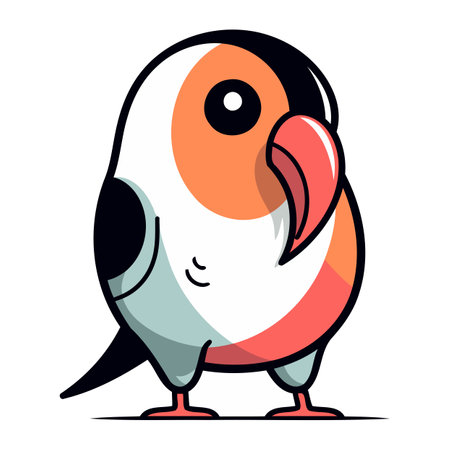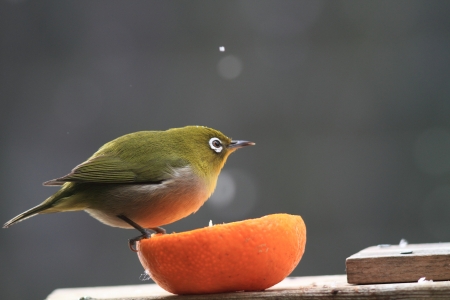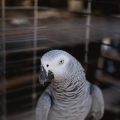1. Understanding Avian Nutritional Needs in the UK
When it comes to caring for birds in the United Kingdom, whether you’re tending to a boisterous budgie in your lounge or observing a flurry of robins in your garden, understanding their nutritional needs is essential for their health and happiness. The UK is home to a remarkable diversity of both pet and wild bird species, each with its own unique dietary preferences and requirements shaped by local climate, seasonal changes, and native flora. For example, our beloved British garden birds like blue tits and sparrows thrive on a varied diet of seeds, berries, insects, and suet—especially during the colder months when natural food sources become scarce. In contrast, popular pet birds such as cockatiels, canaries, and parrots require carefully balanced diets that often go beyond what standard seed mixes provide. It’s not simply a matter of filling up a feeder; it’s about tailoring nutrition to suit the species’ natural habits and physiological needs. With urbanisation and changes in landscape across the UK, both wild and captive birds are exposed to new dietary challenges. Responsible keepers must pay close attention to these factors—whether offering supplementary foods in the garden or crafting bespoke meals for companion birds indoors. By delving into the specific nutritional needs of Britain’s feathered residents, we lay the foundation for robust health, vibrant plumage, and lively behaviours that are such a joy to observe.
2. Species-Specific Diet Recommendations
When it comes to providing optimal nutrition for birds commonly kept or observed in the UK, understanding each species’ dietary requirements is essential. British avian companions such as budgerigars, canaries, finches, parrots, and native garden birds have distinct preferences and needs that must be met for their health and vitality. Below, we detail tailored nutrition plans for these popular species:
Budgerigars (Budgies)
Budgies thrive on a balanced diet that mimics what they would consume in their natural Australian habitat but adapted for life in British homes. Their daily meals should include:
| Food Type | Recommended Proportion | Notes |
|---|---|---|
| High-quality seed mix | 60% | Opt for mixes low in sunflower seeds; supplement with fortified options |
| Fresh vegetables (e.g., broccoli, spinach, carrots) | 20% | Offer a variety daily; avoid avocado and onion |
| Pellets formulated for budgies | 10-15% | Choose reputable brands designed for small parrots |
| Fruits (e.g., apple, pear – pips removed) | 5% | Treats only; too much fruit can cause digestive upset |
| Cuttlefish bone/mineral block | – | Provide at all times for calcium and beak health |
Canaries and Finches
British canaries and finches are primarily seed eaters but require supplementation to prevent deficiencies:
- Seed mix: The base of their diet; choose varieties specifically made for canaries or finches.
- Egg food: Essential during breeding and moulting seasons for protein boost.
- Fresh greens: Offer dandelion leaves, chickweed, or spinach several times per week.
- Sliced apple or berries: Occasional treats, but always remove seeds or pips.
- Cuttlefish bone/grit: Provide freely for calcium and digestion support.
Parrots (African Greys, Amazons & Cockatiels)
Larger parrots kept in British households need varied diets to meet their complex nutritional demands:
| Nutrient Source | Description & Frequency |
|---|---|
| Pelleted diet (mainstay) | A high-quality parrot pellet should make up 50-70% of their intake; ensures balanced vitamins/minerals. |
| Fresh produce (veg & fruit) | Add leafy greens, carrots, sweet potato, apple (no pips), berries—at least daily. |
| Nuts & seeds (as treats) | Pumpkin seeds, walnuts, almonds: sparingly due to fat content. |
Native Garden Birds (Robins, Blue Tits, Sparrows)
If you’re feeding wild birds in your UK garden, seasonal variation is key. Here’s a quick guide:
| Bread Type/Food Item | Best Season/Notes |
|---|---|
| Shelled sunflower seeds & peanuts (unsalted) | Winter – high energy source when insects are scarce. |
| Dried mealworms & suet pellets | Bred season/winter – protein boost for chicks/adults alike. |
| Mild grated cheese & soaked sultanas/raisins | Sporadically year-round – avoid mouldy food. |
General Tips Across Species:
- Always provide fresh water daily and clean bowls regularly to prevent bacterial growth.
- Avoid offering bread as a staple to wild or pet birds—it lacks nutrients and can cause harm.
- Treats should never comprise more than 10% of any birds overall diet.
This careful attention to species-specific dietary needs helps ensure your feathered friends—whether exotic pets or native visitors—enjoy robust health throughout the year in the UK’s unique climate and environment.

3. Feeding Practices and Tips for UK Bird Keepers
Keeping birds healthy and content in the UK means more than simply filling a feeder; it involves thoughtful sourcing, preparation, and serving of food tailored to each species needs. As a dedicated bird keeper, you’ll find that your feathered companions thrive when their diet mirrors what they’d encounter in local British habitats.
Sourcing Quality Ingredients
Whenever possible, opt for fresh, locally-sourced produce. Farmer’s markets and reputable pet shops are excellent places to find bird-safe fruits and vegetables free from excessive pesticides. For those keeping parrots or finches, seek out mixed seeds, nuts, and dried berries native to the UK—such as blackberries, hawthorn berries, and hazelnuts.
Embracing Seasonal Variety
Rotate foods according to what’s seasonally available: offer wild greens like dandelion leaves in spring, fresh garden peas in summer, apples and pears come autumn, and root vegetables such as carrots in winter. This not only provides nutritional balance but also keeps your birds interested and engaged with their meals.
Preparation and Safety
Wash all fruits and vegetables thoroughly to remove any residues. Chop produce into manageable sizes based on your birds’ beaks; soft fruits can be mashed for smaller species while larger parrots enjoy whole pieces to gnaw. Avoid avocado, chocolate, onion, garlic, and anything salty or sugary—these are toxic to birds.
Serving Techniques
Present food in clean bowls or on platforms above ground level to mimic natural foraging habits. Scatter seeds or hide treats within safe foliage or puzzle feeders for enrichment. Regularly change water and remove uneaten food daily to prevent spoilage.
A Special Note for UK Weather
During colder months, supplement diets with high-fat seeds (like sunflower hearts) and suet pellets for wild visitors such as tits or robins. In summer, increase hydration by offering juicy fruits and always provide fresh water. By tailoring your feeding practices with care and local awareness, you help ensure the health and happiness of Britain’s beloved avian companions.
4. Supplements and Special Considerations
While a well-balanced, species-appropriate diet is the cornerstone of avian health, there are times when supplements become essential—especially given the unique challenges faced by birds living in the UK. Our unpredictable climate, shorter daylight hours during winter, and indoor living conditions can all contribute to nutritional gaps or specific deficiencies that require careful management.
When Should You Use Supplements?
Supplements are most beneficial when addressing known deficiencies, supporting breeding pairs, or helping birds recover from illness. However, indiscriminate use can do more harm than good, so always consult an avian vet before adding supplements to your bird’s diet. Typical scenarios where supplementation may be needed include:
- Lack of natural sunlight (vitamin D3 deficiency)
- Poor feather quality (amino acids and fatty acid support)
- Breeding and egg-laying periods (increased calcium and vitamin requirements)
- Recovering from illness or stress
Common Deficiencies in UK Avian Species
| Nutrient | Common Signs of Deficiency | Birds Most at Risk | UK-Specific Challenge |
|---|---|---|---|
| Vitamin D3 | Weak bones, egg binding, lethargy | Indoor parrots, budgerigars, finches | Lack of sunlight in winter months |
| Calcium | Poor eggshells, muscle tremors, seizures | Cockatiels, lovebirds, laying hens | Diets based on seeds only |
| Iodine | Swollen thyroid gland (“goitre”) | Canaries, budgies | Low iodine content in seed diets common in UK shops |
| Amino Acids & Omega-3s | Poor feather condition, slow moulting | Softbills (robins, blackbirds), parrots during moult | Lack of live foods/greens in winter diets |
The UK Climate and Bird Health: What to Watch For?
The dampness and lower temperatures prevalent across the UK can lead to reduced activity levels and increased susceptibility to respiratory issues in birds. This makes it even more important to ensure dietary adequacy—particularly regarding immune-supportive nutrients such as vitamin A and E. Additionally, birds with limited access to natural foraging due to urbanisation or seasonal scarcity may benefit from carefully chosen multivitamin or mineral supplements.
How to Supplement Safely?
- Dose Correctly: Always follow veterinary guidance or manufacturer recommendations—over-supplementation is dangerous.
- Mimic Natural Intake: Where possible, provide nutrients through whole foods (e.g., cuttlefish bone for calcium), reserving synthetic supplements for cases of clear deficiency.
- Monitor Birds Closely: Look out for changes in droppings, behaviour, or plumage that might suggest nutritional imbalance.
- Avoid Mixing Brands: Stick to one reputable supplement brand at a time to prevent accidental overdose.
A Note on Wild Birds and Garden Visitors in the UK:
If you feed wild birds in your garden, avoid supplementing their food directly—provide a wide range of natural options (seeds, fruit, suet) instead. Excessive artificial supplementation can disrupt natural feeding behaviours and local ecosystems.
5. Avoiding Diet-Related Health Issues
Recognising the Early Signs of Poor Nutrition
As a devoted bird keeper in the UK, spotting the subtle hints of dietary imbalance is crucial for your feathered companion’s wellbeing. Watch out for signs such as dull or ruffled feathers, lethargy, changes in droppings, abnormal weight loss, overgrown beaks or claws, and reduced vocalisation. British species like budgerigars, canaries, and even our beloved garden finches are particularly sensitive to nutritional shortfalls due to our unique seasonal changes and indoor housing styles. Regular observation—during morning routines or cleaning out the aviary—can help you catch these issues early before they become serious.
Implementing Preventive Care
Prevention always beats cure when it comes to avian nutrition. Start by offering a well-rounded diet tailored to your bird’s species: native UK birds such as robins and tits thrive on a mix of high-quality seeds, fresh greens, berries, and appropriate supplements, especially during moulting or breeding seasons. Rotate fresh foods regularly to maintain interest and nutritional variety. For indoor parrots and exotics common in Britain, ensure their diet isn’t too heavy on sunflower seeds and includes plenty of vegetables and fruits safe for avian consumption.
The Importance of Routine Health Checks
Make it a habit to weigh your birds weekly with a reliable digital scale; sudden changes can be an early indicator of underlying problems. Consult with an avian vet familiar with British species at least once a year for a full health check-up—including discussions about dietary plans suited to the UK’s climate and available food sources.
Seasonal Adjustments for UK Birds
British weather demands careful attention: during colder months, wild and captive birds alike may require higher energy diets to maintain body temperature. In summer, hydration becomes vital—offer clean water daily and consider moist foods such as cucumber or apple (with seeds removed) for added hydration. Always remove uneaten fresh food promptly to prevent spoilage and attract fewer pests.
By staying alert to signs of poor nutrition and maintaining consistent preventive care tailored to UK conditions, you’ll lay the foundation for your birds’ long-term health and happiness—a true mark of responsible avian stewardship in Britain.
6. Resources for British Bird Enthusiasts
Caring for birds in the UK, whether you’re looking after native wild species or cherished avian companions, is made easier with the wealth of resources available to support optimal nutrition and health. Below, I’ll share some trusted avenues where you can find reliable guidance, quality bird food, and connect with a supportive community of fellow enthusiasts.
Where to Seek Reputable Avian Advice
For those new to aviculture or seeking specialist advice on tailored diets for British species, organisations like the Royal Society for the Protection of Birds (RSPB) and The Parrot Society UK offer comprehensive information, care guides, and helplines. Local veterinary practices often have exotics specialists who understand the nuances of British bird care. Don’t overlook local wildlife trusts and university extension programmes—they’re a goldmine for region-specific dietary recommendations.
Sourcing Quality Bird Food in the UK
When it comes to feeding your feathered friends, quality matters. Look for trusted suppliers such as Haith’s, CJ Wildlife, or Johnston & Jeff. These companies are renowned for their commitment to providing species-appropriate blends and supplements tailored for both wild and companion birds. Many UK-based garden centres and pet shops also stock reputable brands—just be sure to check labels and opt for those that avoid artificial additives and fillers. For special dietary needs, consult avian vets or nutritionists who can recommend bespoke mixes.
Connecting with Local Aviculture Communities
No one understands the joys and challenges of bird keeping quite like fellow enthusiasts! Across the UK, there are numerous clubs such as the British Bird Council, regional bird societies, and online forums where keepers share experiences, advice, and even swap home-grown foods. Participating in local events or attending aviary open days is a brilliant way to exchange tips about seasonal feeding habits and learn about the latest advances in avian nutrition.
Join Workshops and Events
Keep an eye out for workshops run by wildlife charities or pet supply stores—these often cover topics from natural foraging to preparing homemade seed cakes. Attending these sessions is not only educational but also a great way to meet others who are passionate about improving standards of avian care in Britain.
Your Ongoing Support Network
Nurturing healthy birds is a journey best shared. By tapping into these resources—seeking expert advice, sourcing nutritious food from reputable suppliers, and connecting with local communities—you’ll ensure your British birds thrive on diets as rich and diverse as their wild cousins enjoy across our green and pleasant land.

